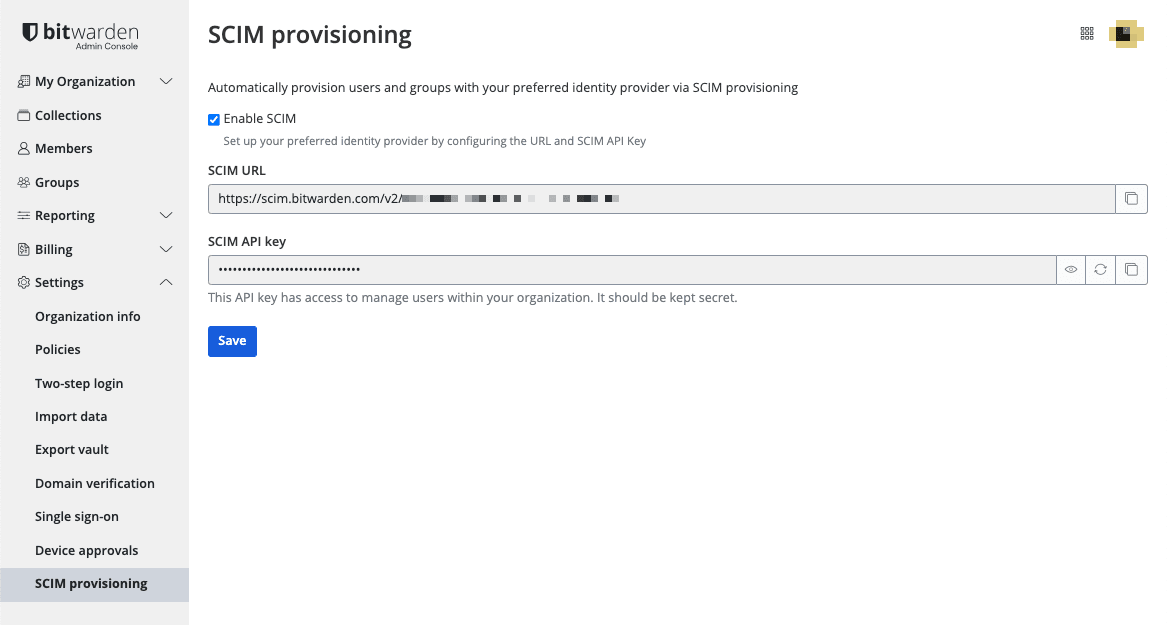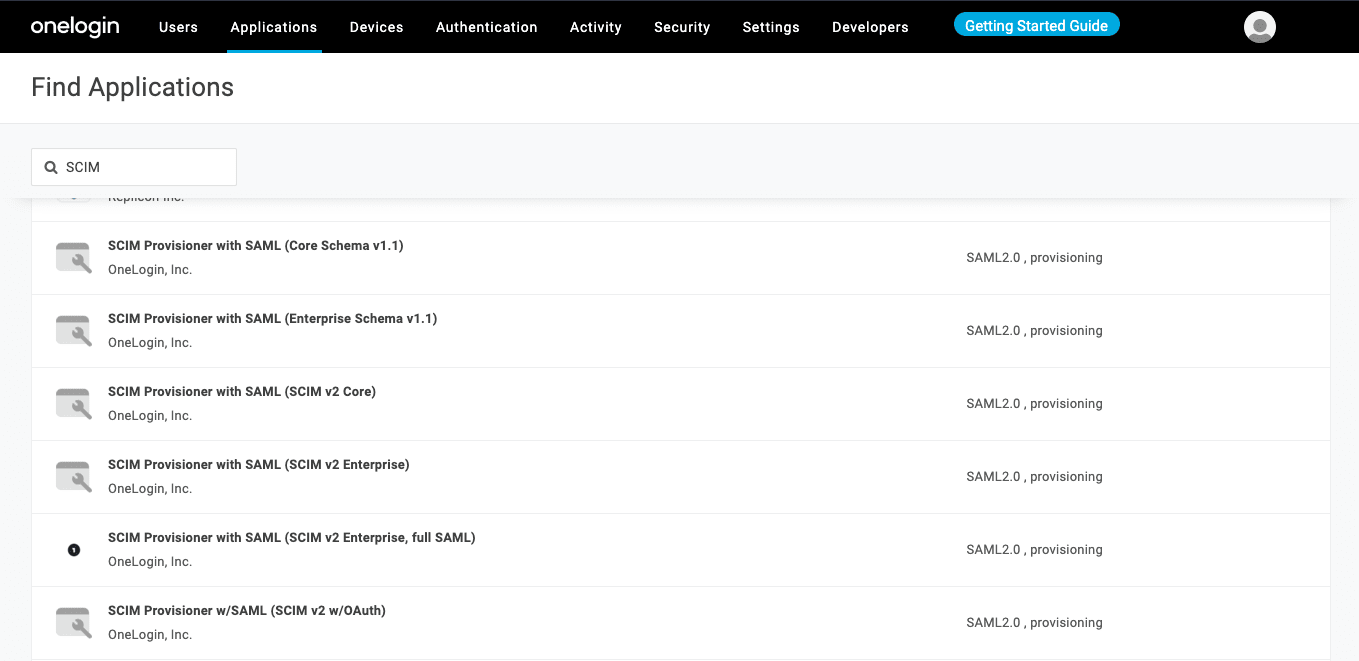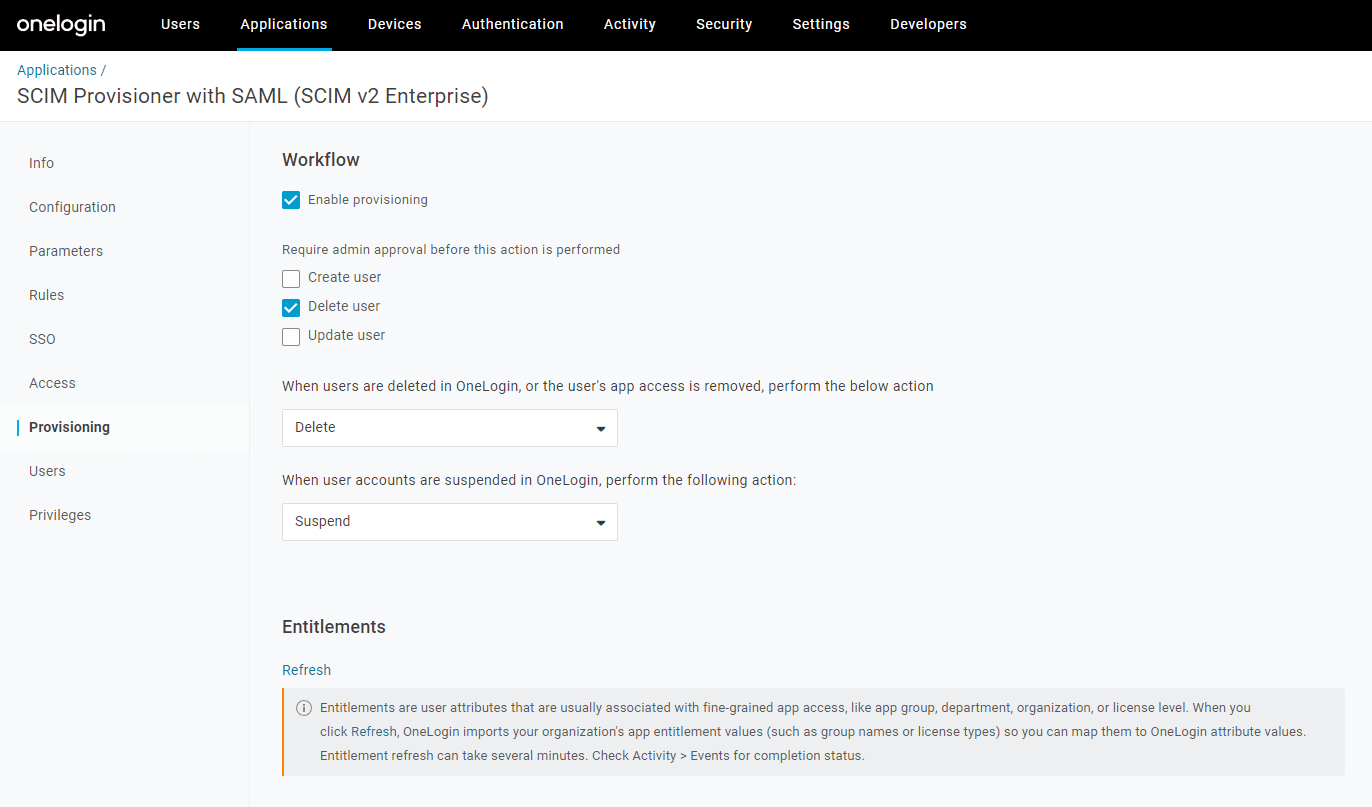OneLogin SCIM Integration
System for cross-domain identity management (SCIM) can be used to automatically provision and de-provision members and groups in your Bitwarden organization.
note
SCIM Integrations are available for Enterprise organizations. Teams organizations, or customers not using a SCIM-compatible identity provider, may consider using Directory Connector as an alternative means of provisioning.
This article will help you configure a SCIM integration with OneLogin. Configuration involves working simultaneously with the Bitwarden web vault and OneLogin Admin Portal. As you proceed, we recommend having both readily available and completing steps in the order they are documented.
note
Are you self-hosting Bitwarden? If so, complete these steps to enable SCIM for your server before proceeding.
To start your SCIM integration, open the Admin Console and navigate to Settings → SCIM provisioning:

Select the Enable SCIM checkbox and take note of your SCIM URL and SCIM API Key. You will need to use both values in a later step.
In the OneLogin Portal, navigate to the the Applications screen and select the Add App button:

In the search bar, type SCIM and select the SCIM Provisioner with SAML (SCIM v2 Enterprise) app:

Give your application a Bitwarden-specific Display Name and select the Save button.
Select Configuration from the left-hand navigation and configure the following information, some of which you will need to retrieve from the Single Sign-On and SCIM Provisioning screens in Bitwarden.

Application details
OneLogin will require you to fill in the SAML Audience URL and SAML Consumer URL fields even if you aren't going to use single sign-on. Learn what to enter in these fields.
API connection
Enter the following values in the API Connection section:
Application setting | Description |
|---|---|
SCIM base URL | Set this field to the SCIM URL (learn more). |
SCIM bearer token | Set this field to the SCIM API key (learn more). |
Select Save once you have configured these fields.
Select Access from the left-hand navigation. In the Roles section, assign application access to all the roles you would like provision in Bitwarden. Each role is treated as a group in your Bitwarden organization, and users assigned to any role will be included in each group including if they are assigned multiple roles.
Select Parameters from the left-hand navigation. Select Groups from the table, enable the Include in User Provisioning checkbox, and select the Save button:

Create a rule to map OneLogin Roles to Bitwarden groups:
Select Rules from the left-hand navigation.
Select the Add Rule button to open the New mapping dialog:

Role/Group Mapping Give the rule a Name like Create Groups from Rules.
Leave Conditions blank.
In the Actions section:
Select Set Groups in <application_name> from the first dropdown.
Select the Map from OneLogin option.
Select role from the "For each" dropdown.
Enter .* in the "with value that matches" field to map all roles to groups, or enter a specific role name.
Select the Save button to finish creating the rule.
Select Configuration from the left-hand navigation, and select the Enable button under API Status:

This test will not start provisioning, but will make a GET request to Bitwarden and display Enabled if the application gets a response from Bitwarden successfully.
Select Provisioning from the left-hand navigation:

On this screen:
Select the Enable Provisioning checkbox.
In the When users are deleted in OneLogin... dropdown, select Delete.
In the When user accounts are suspended in OneLogin... dropdown, select Suspend.
When you are done, select Save to trigger provisioning.
Now that your users have been provisioned, they will receive invitations to join the organization. Instruct your users to accept the invitation and, once they have, confirm them to the organization.
note
The Invite → Accept → Confirm workflow facilitates the decryption key handshake that allows users to securely access organization vault data.
Both Bitwarden and OneLogin's SCIM Provisioner with SAML (SCIM v2 Enterprise) application use standard SCIM v2 attribute names. Bitwarden will use the following attributes:
activeemailsª oruserNamedisplayNameexternalId
ª - Because SCIM allows users to have multiple email addresses expressed as an array of objects, Bitwarden will use the value of the object which contains "primary": true.
Suggest changes to this page
How can we improve this page for you?
For technical, billing, and product questions, please contact support